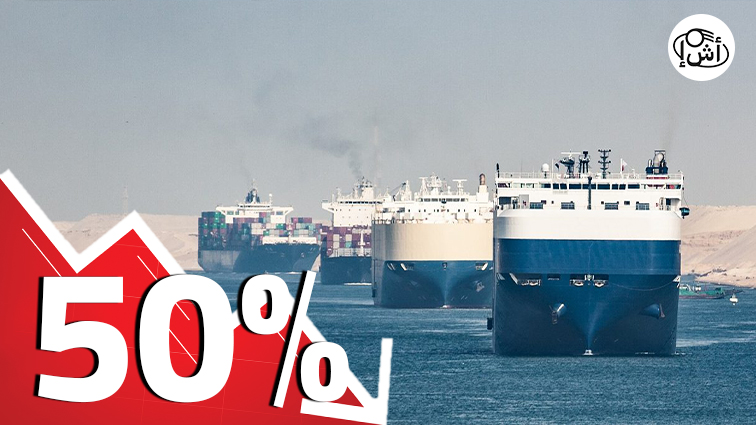Egypt’s Finance Minister Mohamed Maait announced a 50% drop in Suez Canal revenues, without providing any timeframe for the continuation of this decline in the future.
The disruption of navigation in the Red Sea due to Houthi attacks on ships has led to a decline in revenues from the Suez Canal, one of the most important sources of foreign exchange in Egypt, which is currently suffering from a significant economic downturn.
Egypt raised interest rates by 600 basis points (6%) and allowed the pound to fall sharply against the dollar as it announced an agreement on an expanded program with the International Monetary Fund, less than two weeks after unveiling a $35 billion investment with UAE’s ADQ Holding Company.
The updated agreement with the IMF includes a framework aimed at slowing infrastructure spending that accelerated under President Abdel Fattah al-Sisi, and to provide social protection for the most vulnerable.
Egyptian Prime Minister Mostafa Madbouly said at a press conference: “The government plans to conclude large deals to ensure liquidity and will work with traders to control prices and prioritize the availability of foreign currency to importers of basic commodities after allowing the liberalization of the exchange rate of the pound.”
Madbouly added, “The Interior Ministry was instructed to strike with an iron fist against all black-market traders and the network system that controlled the remittances of Egyptians abroad.”
